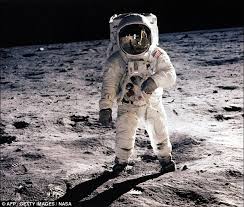
Breaking News
 BACKWARD ROLLING CONFIRMED: 1,624 Contracts Just Demanded Delivery NOW ($100 Silver is Inevitable)
BACKWARD ROLLING CONFIRMED: 1,624 Contracts Just Demanded Delivery NOW ($100 Silver is Inevitable)
SEMI-NEWS/SEMI-SATIRE: January 11, 2026 Edition
 "Appalling": Debanking Explodes To Record High In Britain
"Appalling": Debanking Explodes To Record High In Britain
 MTG explodes in astonishing f-bomb laden tirade as Trump orders Secret Service probe:
MTG explodes in astonishing f-bomb laden tirade as Trump orders Secret Service probe:
Top Tech News
 World's most powerful hypergravity machine is 1,900X stronger than Earth
World's most powerful hypergravity machine is 1,900X stronger than Earth
 New battery idea gets lots of power out of unusual sulfur chemistry
New battery idea gets lots of power out of unusual sulfur chemistry
 Anti-Aging Drug Regrows Knee Cartilage in Major Breakthrough That Could End Knee Replacements
Anti-Aging Drug Regrows Knee Cartilage in Major Breakthrough That Could End Knee Replacements
 Scientists say recent advances in Quantum Entanglement...
Scientists say recent advances in Quantum Entanglement...
 Solid-State Batteries Are In 'Trailblazer' Mode. What's Holding Them Up?
Solid-State Batteries Are In 'Trailblazer' Mode. What's Holding Them Up?
 US Farmers Began Using Chemical Fertilizer After WW2. Comfrey Is a Natural Super Fertilizer
US Farmers Began Using Chemical Fertilizer After WW2. Comfrey Is a Natural Super Fertilizer
 Kawasaki's four-legged robot-horse vehicle is going into production
Kawasaki's four-legged robot-horse vehicle is going into production
 The First Production All-Solid-State Battery Is Here, And It Promises 5-Minute Charging
The First Production All-Solid-State Battery Is Here, And It Promises 5-Minute Charging
 See inside the tech-topia cities billionaires are betting big on developing...
See inside the tech-topia cities billionaires are betting big on developing...
Moon Landings Are Back in Style, and Other Space Trends of 2017

It's impossible to predict how 2017 will shake out in full, but one thing is for certain—it will be another remarkable year for space science. Read on for Motherboard's preview of the most momentous launches, missions, and celestial events to look forward to over the next 12 months, from the maiden flight of a colossal rocket to the swan song of Saturn's workhorse orbiter.
On August 21, 2017, skywatchers in the continental United States will be treated to a total solar eclipse for the first time since 1979. When the Moon passes in front of the Sun that Monday, it will cast a 70-mile-wide moving shadow, called the "path of totality," that will travel from Oregon to South Carolina in 94 minutes. North Americans who don't fall under the direct route of the occultation will still get to enjoy partial eclipses, depending on the latitude.

 Storage doesn't get much cheaper than this
Storage doesn't get much cheaper than this

